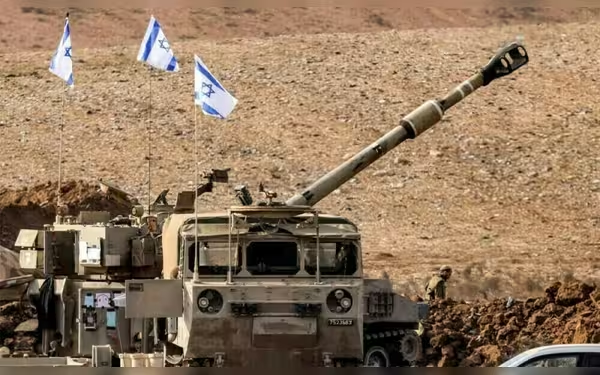Thursday, November 7, 2024 04:52 PM
Israel Kills Top Hezbollah Commander Abu Ali Rida in Lebanon Strike
- Israeli military targets Hezbollah commander in airstrike.
- Abu Ali Rida orchestrated attacks against Israeli forces.
- Conflict escalates amid ongoing hostilities in the region.
 Image Credits: brecorder
Image Credits: brecorderIsrael's military confirms the killing of Hezbollah commander Abu Ali Rida in a significant airstrike amid escalating regional tensions.
In a significant escalation of the ongoing conflict in the Middle East, the Israeli military announced on Monday that it has successfully targeted and killed a high-ranking commander of Hezbollah, a militant group based in Lebanon. This operation is part of Israel's broader military campaign against Hezbollah, which has intensified since the outbreak of war in late September. The commander, identified as Abu Ali Rida, was reportedly responsible for orchestrating rocket and anti-tank missile attacks against Israeli forces operating in southern Lebanon.
The Israeli military described Rida as a key figure in the Baraachit area, stating that he was "eliminated" in an airstrike. However, the military did not disclose the exact timing of the operation. According to their statement, Rida played a crucial role in planning and executing attacks on the Israel Defense Forces (IDF) and was actively overseeing Hezbollah operatives in the region.
This latest strike is part of a series of military actions by Israel aimed at dismantling Hezbollah's operational capabilities. Since the conflict reignited, Israel has targeted multiple leaders and commanders within the group, including the former chief, Hassan Nasrallah. The ongoing hostilities have roots in a year-long series of cross-border skirmishes, which escalated dramatically when Hezbollah began launching rockets into northern Israel, aligning itself with Hamas, the Palestinian militant group.
The situation remains tense as Israel continues to engage in what it describes as its deadliest war against Hamas in Gaza, following a surprise attack on southern Israel on October 7 of the previous year. The conflict has not only affected military personnel but has also had dire consequences for civilians on both sides, raising concerns about humanitarian crises and the potential for further escalation.
As the situation develops, it is essential for the international community to pay close attention to the implications of these military actions. The cycle of violence between Israel and Hezbollah poses significant risks not only to regional stability but also to global peace. Understanding the complexities of this conflict is crucial for fostering dialogue and seeking a resolution that prioritizes the safety and well-being of all affected populations.













